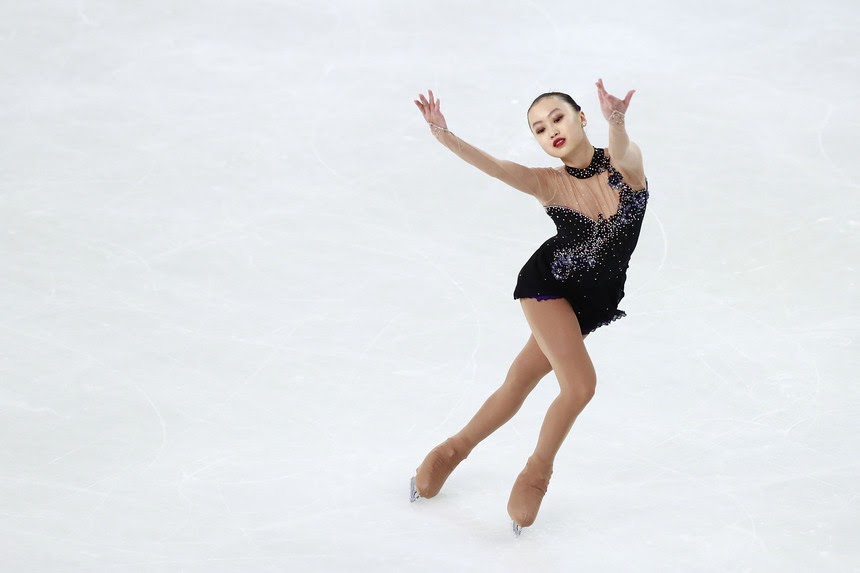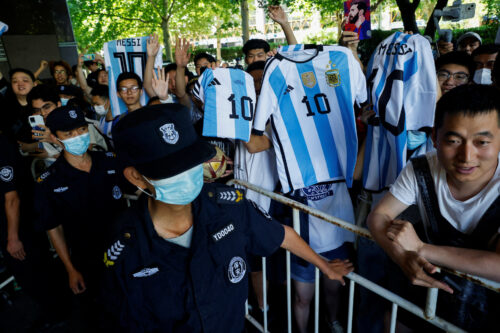Champion figure skater urges China to stop abusing young athletes
Jessica Yu (于书然 Yú Shūrán), a Chinese-born figure skater who competed for Singapore before her retirement in 2018, has spoken up about her own experience of physical and emotional abuse when training in China as a teenager.

Jessica Yu (于书然 Yú Shūrán), a Chinese-born figure skater who competed for Singapore before her retirement in 2018, has spoken up about her own experience of physical and emotional abuse when training in China as a teenager.
In an Instagram post on Tuesday, Yu, age 20, said that during her time in the country, abuse of athletes by coaches was commonplace behavior, widely accepted and often encouraged. Yu is now a college student based in New York. She said that the physical abuse started when she was 11 years old and continued for several years until she moved to Singapore, her father’s home country.
Yu recalled a host of abusive methods used by her trainers, including berating her at practice, kicking and hitting her with objects, hurling insults at her, and putting her on extreme diets that resulted in eating disorders.
“Failure to stay on a strict diet would send me into a spiral of guilt and self-hatred, which led to bingeing episodes. There was a time in my life when this would happen weekly. My mind would shut off and I would consume immense amounts of food in one sitting. I would feel myself getting uncomfortably full but still be unable to stop. To this day, the feeling after a binge episode is one of my least favorite things in the world,” she wrote.
Yu added that she felt empowered to come forward and share her stories after watching Athlete A, a documentary about the rampant sexual abuse in U.S. gymnastics, and reading accounts by American Olympic champion gymnast Laurie Hernandez, who recently opened up about the horrific verbal abuse she faced from coach Maggie Haney.
Yu’s Instagram post was timed with a Guardian article published on July 21, in which she said that she was shocked to find that the abuse was still happening when she coached recently at a prominent training center in Beijing. “I saw one junior skater get hit and dragged off the ice, while another was pressured into competing on two torn ligaments, which left them needing surgery afterward,” she said.
She also told the Guardian that “as a Singaporean athlete who trained in China,” she felt she was in a “unique position” to call for changes in Chinese sports culture. She noted that with Beijing hosting the Winter Olympics in 2022, she wanted the International Olympic Committee to recognize that it had “a unique opportunity to use its influence” to protect young women and girls vulnerable to abuse, especially those in sports like skating and gymnastics.
It’s hardly a secret that in China, competitive sports is more than just about winning or setting a record. Rather, it’s a major source of national pride for many Chinese. In order to make sure its athletes can perform well in international competitions, China has a Soviet-style sports regime, where children hoping to become Olympic champions attend government-backed sports schools to receive rigorous — and in many cases — abusive training.






